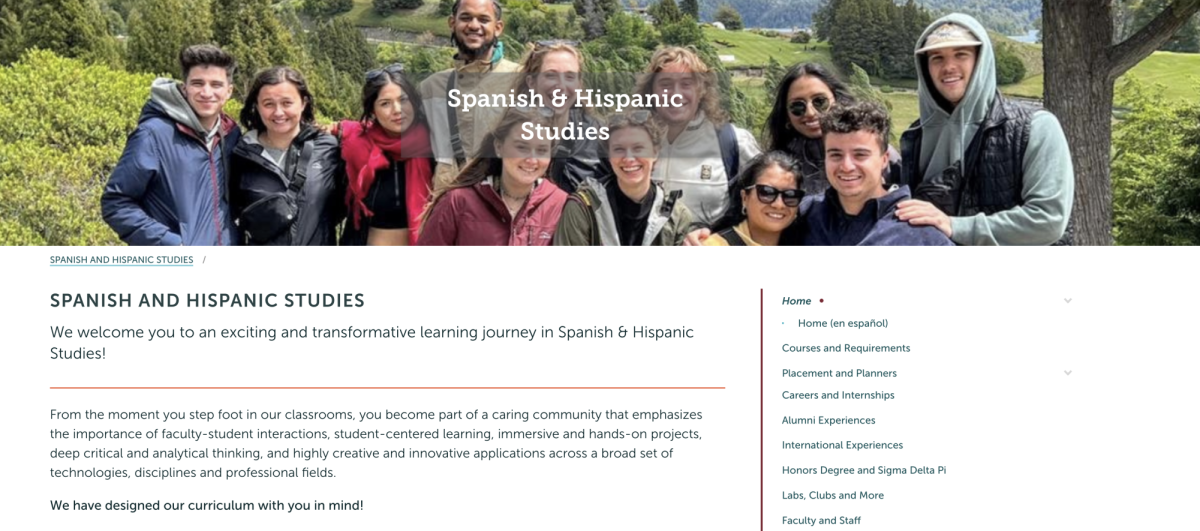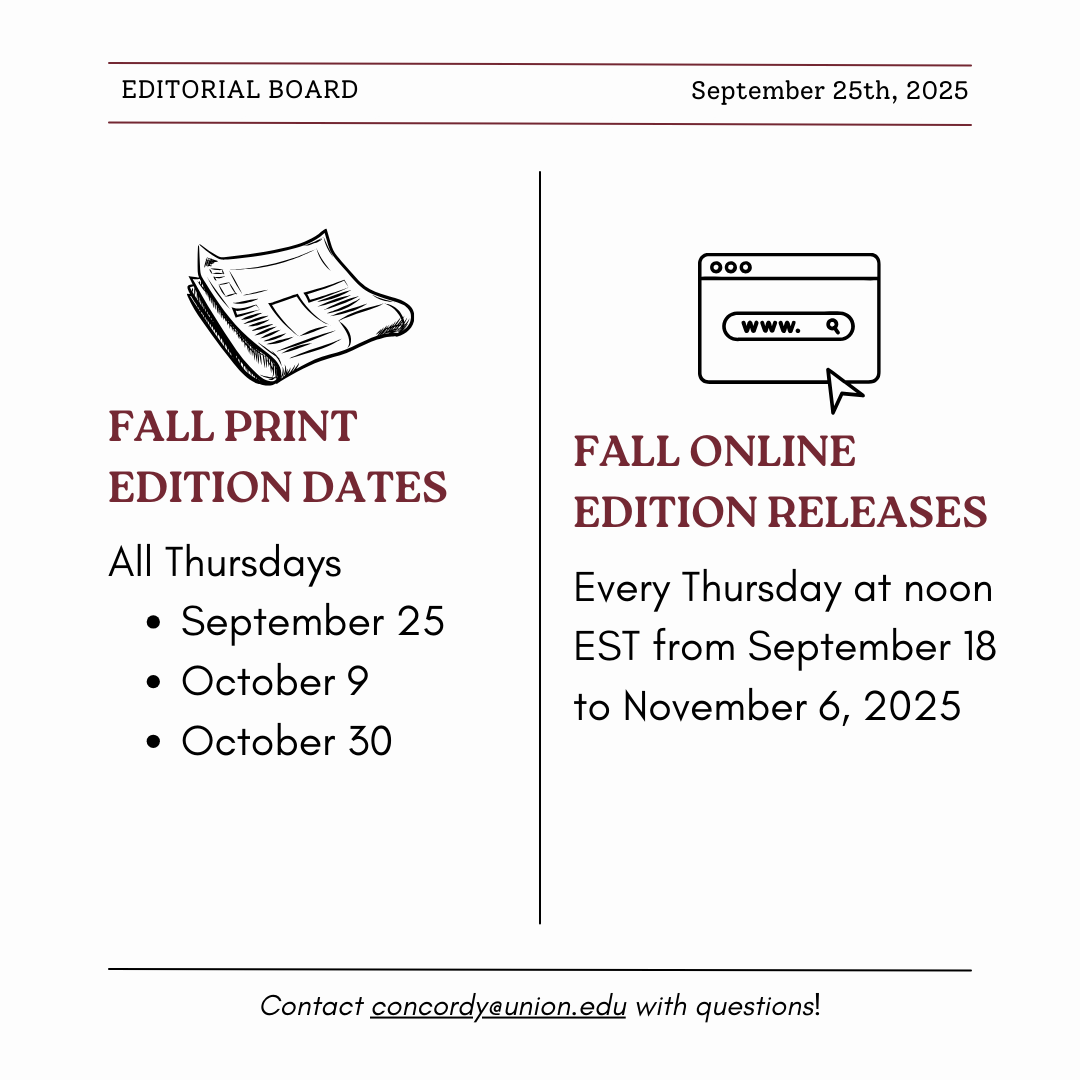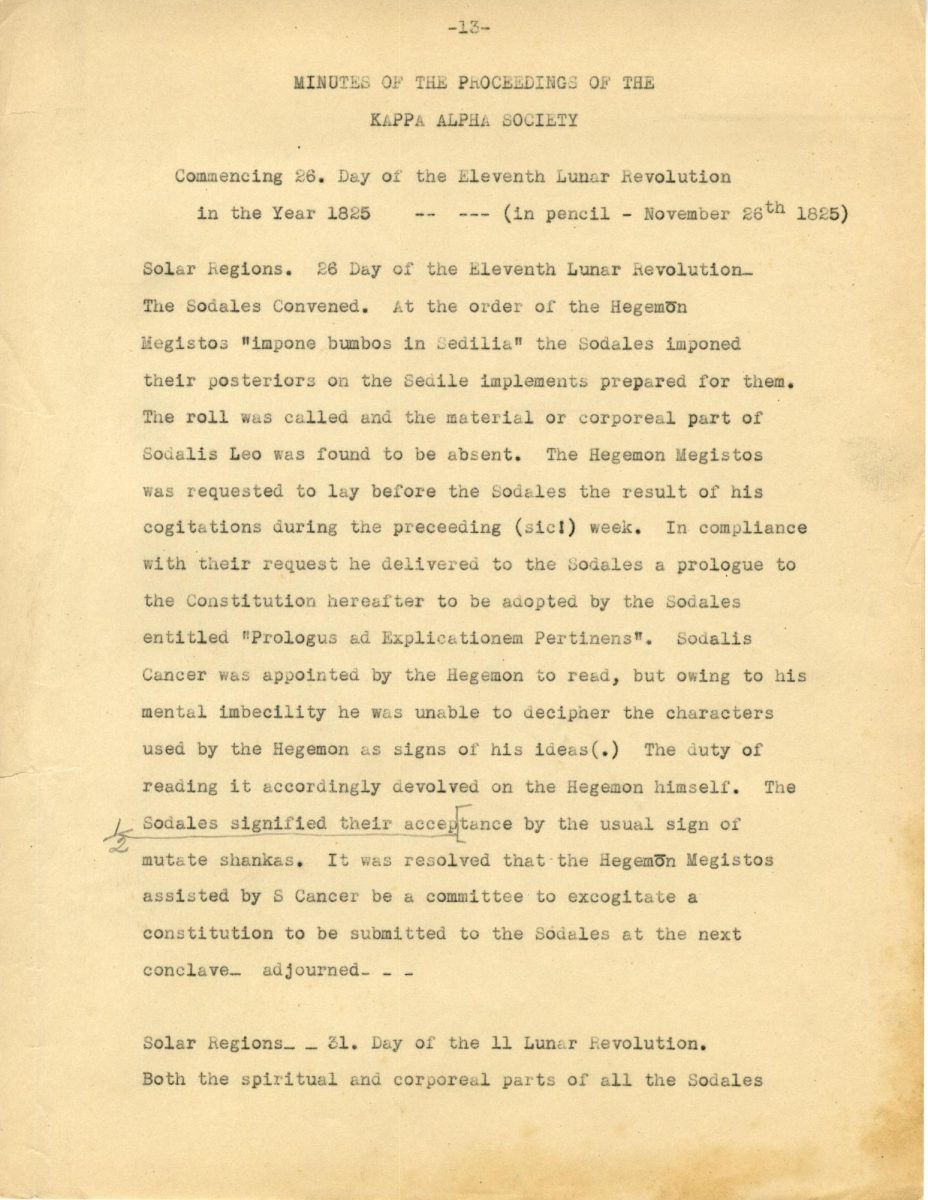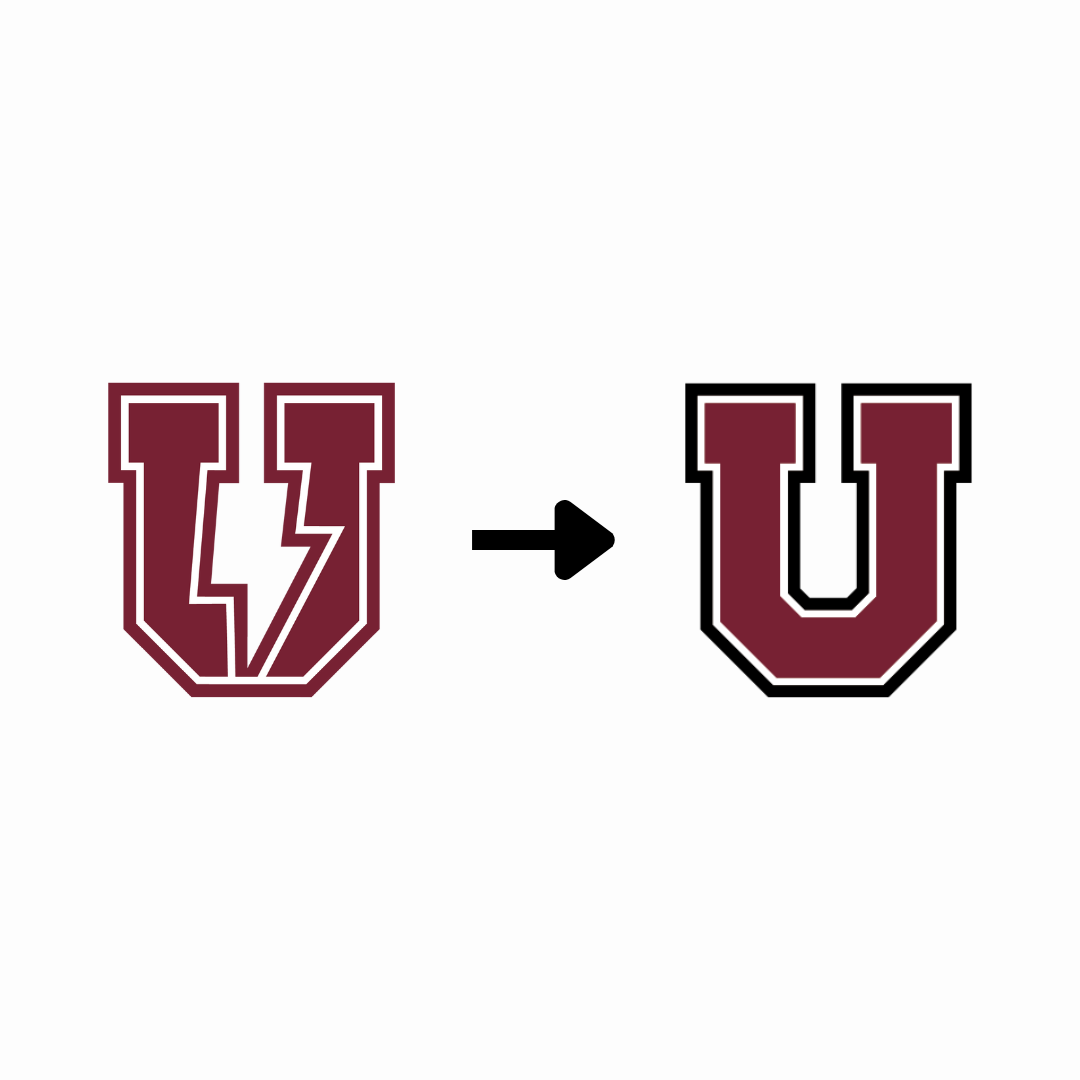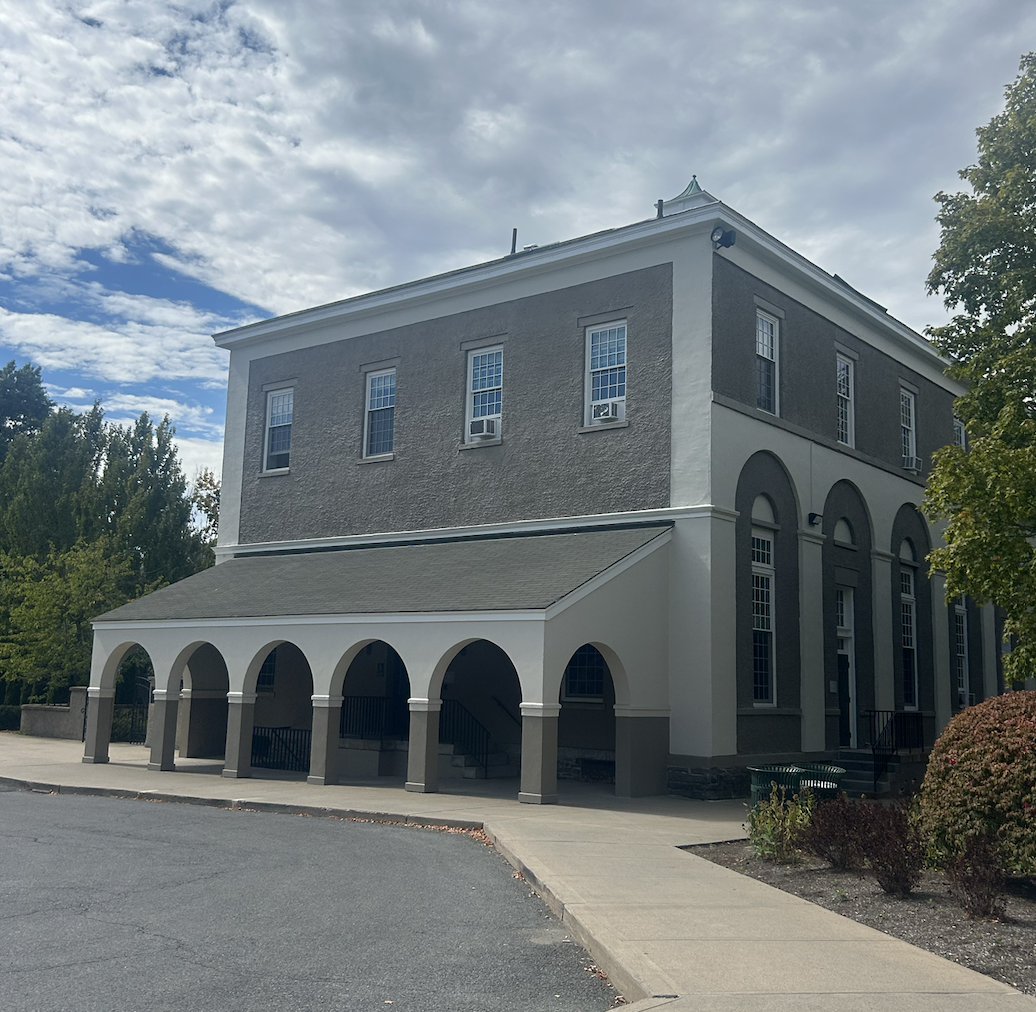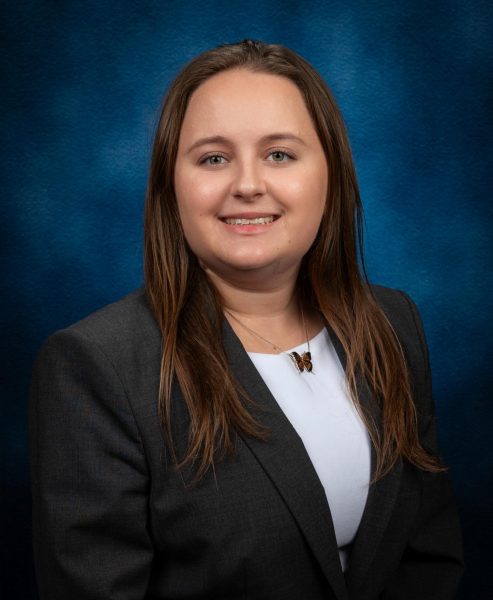During week 8 or 9 of every trimester, Union students register for courses for the following term. During these registration periods, students sometimes encounter issues with registration, and accessing the courses they want. The Concordiensis spoke to Tom Jordan, the Director of Academic Advising and Enrichment, and attended an informational session to gather information about how to register for classes, and what to do in case of common issues.
Students can browse the course catalog and register for classes on SelfService. However, before students can register for classes, a student must meet with their advisor, and the advisor must give them clearance to register for the following term. They must also work with their advisor to determine what courses they need to take, from their general education requirements to their major courses. Students must also have a clear account balance, and international students must check in with the international advisor each term.
Each term, the registrar’s office assigns students a date and time to register for courses over several days, with seniors on the first day, then juniors, sophomores, and finally, first years. It is highly recommended that students are on SelfService at the time of registration, even if they are in class, because classes can fill up quickly. Registration times cannot be changed.
Some classes have different registration requirements, called Pre-approval. Pre-approval is a process where students fill out surveys to register for specific classes, such as Calculus and Biology courses. “Some courses use pre-approval because they require careful enrollment management. In general, though, the Pre-approval Process is designed to support all Union students as they make progress towards graduation,” Tom Jordan, director of Academic Advising and Enrichment, said. “My most important advice for students is to make sure to complete Pre-Approval Surveys by the due date (October 18th for Winter Term 2024) and to answer survey questions as clearly and accurately as possible.” If students are accepted into pre-approved courses, then they will be automatically enrolled in them by the registrar’s office. First year students are also enrolled in a First Year Inquiry (FYI) section by the registrar, but they cannot change this section.
For each term, non-engineering students are able to register for 3 classes, and one term each year engineering students can register for 4. It is recommended that students have multiple sections of a course or multiple course options on their student planning page, because sections can fill up quickly.
It is also important to note that students have to fulfill their General Education (classes of 2024 and 2025) and Complex Questions Curriculum (classes of 2026 and 2027) requirements, in addition to Writing Across the Curriculum (WAC) courses. On SelfService, students can sort through course options that meet these requirements by clicking on the options in a box at the bottom left of the screen.
When students register for courses, there can sometimes be issues with students getting the classes they need. For example, a Mechanical Engineering major may not have been able to get into a Statics section because the sections filled up. However, all hope is not lost if an issue like that arises. “In these types of situations, I always think it is helpful to reach out to your academic advisor. Your advisor can help you assess the level of need for a particular course in a particular term,” Jordan said. “It’s possible that you will be able to take the course when it is next offered without impeding your progress towards degree completion. If your academic advisor does believe it is urgent for you to enroll in a particular course, they can help you with next steps for reaching out to the appropriate department contact.”
Sometimes, students can have issues with getting into popular elective courses. For example, an Economics student wants to take a Classics department elective, but the course filled before they could enroll. “If you are having trouble registering for a class, the first step is to assess the cause of the difficulty. If, for example, the course is full at the time of your registration appointment, you can watch enrollments closely and wait to see if a spot opens up, either during the registration period or during the first week of classes.” Jordan suggested.
In other cases, first and second year students may be unsure of their major or what courses they want to take. “It’s certainly OK to arrive at Union College without a clear sense of what you want to declare for a major. In fact, one of the hallmarks of a liberal arts education is the ability for students to explore (and draw connections between) courses from a variety of academic disciplines,” Jordan said. “If you are undeclared, explore courses and subjects that most interest you. As you do so, you will still be making progress towards your degree through our Complex Question curriculum and WAC program.”
For Winter term 2024 registration, pre-approval surveys were due on October 18, and students will be able to register for courses on October 30 to November 2, 2023. Students are encouraged to work with their advisors, look for courses on SelfService, and plan out their degree before then. Students can also contact the registrar at [email protected] or [email protected] for more information about course registration.



